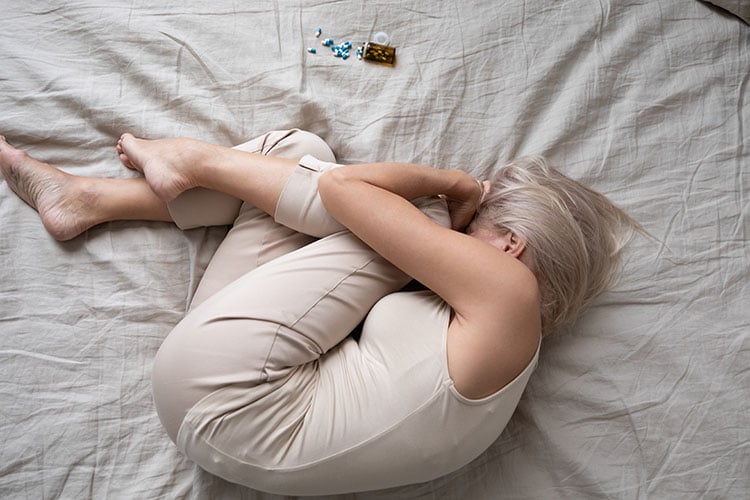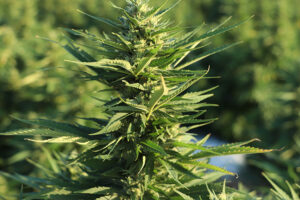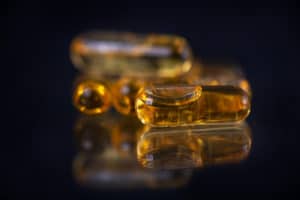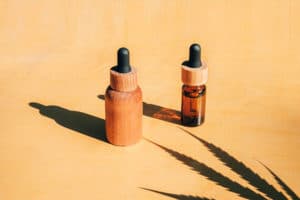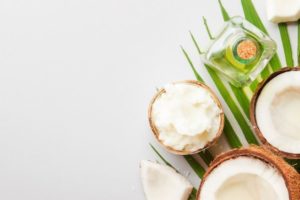The cannabidiol (CBD) industry is growing faster than modern science can keep up. The health benefits of CBD are endless. Many benefits still have to be confirmed by lab tests, and others haven’t yet been discovered. However, side effects do exist. If CBD poses any risks, this article will explore them.
Documented Cases of Overdosing on CBD Oil
Since cannabidiol’s discovery as a phytocannabinoid in 1940 — back when it was called “Minnesota Wild Hemp” — there have been no reported CBD oil overdoses. But what does “overdose” mean, exactly? You’ve likely heard of drug users overdosing and dying, or maybe you even know someone who’s been hospitalized for an overdose. The word itself implies a dosage that’s higher than optimal, which begs the question: “What is the optimal dosage?”
Most people understand the term overdose to mean an “excessive” amount. A more medical definition provides a few more parameters, such as “recommended” and “drug.” Meaning, an optimal dosage must first be established. There is both a lack of tested data regarding the effects of CBD and a missing U.S. Food & Drug Administration (FDA) approval.
Can You Take Too Much CBD Oil?
To experience a severe negative reaction, you would have to take more than a significant amount of CBD. 50,000 milliliter (mL) or more would be required, which is more than many tincture vials even contain. That’s not to say there aren’t any side effects, which we’ll explore below. An accidental overdose would be more likely than a deliberate overdose. A child, for instance, may mistake CBD gummies for regular candy.
What About Overdosing With Vaporizers, Edibles, and Other Modalities?
You can consume CBD in multiple forms. The most common methods are as follows:
- Tinctures
- Capsules
- Topicals
- Vaporizers
- Gummies & Edibles
Vaporizers, like CBD, are still under investigation in terms of their health impact. There are some known risks. Other than vaping, different modalities aren’t known to be more dangerous or safe than others. Effectiveness, however, is a different matter. Listen to your body. Find the modality, dosage, and frequency that works for you.
Can You Overdose Your Dog on CBD?
CBD for dogs is a thing, and it turns out there are many good reasons to share your CBD with your pup. A dog’s stomach — and its entire biology — is different from that of humans. Veterinarians do report some doggy CBD symptoms. Most of these symptoms are mild, such as lethargy and vomiting. CBD simply doesn’t seem to be toxic in any amount for dogs. There’s nothing to worry about. Although, your best friend may develop a taste for a new treat and sneak into your stash from time to time.
Side Effects
While overdosing doesn’t pose a real risk, specific side effects and risks have been cited. The evidence is far from complete, and many reported side effects are just that, personal reports providing only anecdotal evidence. That said, undesirable symptoms do exist and are your body’s way of telling you to rethink your habits.
Known Side Effects of CBD
Here’s the oft-cited list of side effects. If you’re a first-time CBD user, these effects typically occur before you establish a comfortable dosage.
- Changes in appetite
- Changes in weight
- Drowsiness and fatigue
- Diarrhea
- Anxiety
- Dizziness and lightheadedness
- Dry-mouth
- Nausea and vomiting
These side effects are usually mild and temporary. One of the reasons CBD offers so little in the way of side effects is due to our endocannabinoid system (ECS). If you do experience some side effects, that doesn’t necessarily mean you should stop taking CBD. Some healthy considerations are worth exploring.
CBD Can Damage the Liver
Overdosing isn’t a concern, but excessive amounts can interfere with the enzyme-producing capacity of your liver. Again, these were very high and repeated doses of about 50,000 mL.
The studies aren’t yet complete enough to verify any real threat or cause for panic. Even at these high amounts, the results of the study indicate that CBD is less dangerous than ibuprofen, Tylenol, or acetaminophen.
The effects of CBD on human livers have not been tested. The study above uses lab mice, and part of the process includes translating the data to a comparable effect on humans. Some controversy exists regarding the methods of the study.
As more studies are conducted, CBD’s impact on the liver will become more apparent. The greatest danger of taking CBD that you should consider is not from the CBD itself, but instead in how it interacts with pre-existing prescription medications.
CBD Interactions with Prescription Medications
Studies show that interactions pose the only serious risk of taking CBD. You should always consult a trusted health professional before the introduction of new substances. This is especially true when taking prescription medications. Here, we’ll go over some of the known medications that can harmfully interact with CBD oil.
Medications that have a “grapefruit warning” are first on the list. Grapefruit, like CBD, can disrupt enzymes produced in your liver.
Other medications that could potentially harmfully interact with CBD are as such:
- Pain relievers
- Antibiotics
- Blood thinners
- Antihistamines
- Blood pressure medications
- Migraine medications
- Mood medications (for anxiety, depression, etc.)
- Corticosteroids
- Anticancer medication
- Cholesterol medications
- Erectile dysfunction medications
- Heart rhythm medications
- Antiepileptic drugs (AEDs)
- G.I. medications (GERD and nausea)
- Immunosuppressants
- Prostate medications
Tetrahydrocannabinol (THC), while not present in CBD itself, often finds its ways into inferior CBD products, and even exists in trace amounts in CBD isolates. Full-spectrum hemp oil offers the benefits of the entire plant, in addition to that of CBD.
CBD, Breastfeeding, and Young Children
Taking CBD is not advised while breastfeeding due to the varying levels of THC, which can cause adverse conditions. CBD itself is not known to cause harm during breastfeeding.
Because of the overall lack of THC, which is much less widely legal in the USA, CBD has become prevalent. Marijuana, which contains THC, is not the same as CBD. The health risks and benefits differ, and the two should not be used interchangeably.
Young children age two and younger should not take CBD on account of a lack of regulations as well. Like breastfeeding, THC is the culprit responsible for potential harm. No studies suggest CBD itself is harmful to children of any age.
The risks involved in the interaction between CBD oil and prescription medications should be taken very seriously at any dosage amount.
Proper Dosage
Personal preference and trial and error will somewhat determine appropriate dosage amounts. When done right, CBD offers an enjoyable experience and many health benefits. Some of the studied and reported benefits of use include:
- Alleviating pain
- Reducing anxiety
- Treating depression
- Suppressing cancer symptoms
- Clearing up acne
- Protecting the nervous system
- Heart health
Below we go through the process of discovering and determining the right dosage of CBD oil for you.
Talk to a doctor
A trusted health professional is a vital step in determining if CBD will benefit you. Not only will a doctor help you discover harmful interactions or potential side effects, but they can also offer recommendations on quality brands and the optimal usage. After all, doctors hear about health problems and monitor the success of substances on their patients.
What You Need to Know About Yourself for Proper CBD Dosage
Learn the correct dosage by documenting some facts about yourself. The dosage amount will be different for each person, so consider this step carefully. Here are the basic factors to measure first.
- Body weight
- Symptom or condition receiving treatment
- Concentration or amount of CBD of the chosen product
- Your chemistry and overall physiology
Putting the above factors together will give you and your trusted health professional a better picture of what dosage is most effective with the least amount of side effects.
Even without the above information, CBD is not an addictive substance and is entirely non-toxic. Starting with a dosage as small as 20 mg per day is a reasonably harmless way to experience CBD without all the homework. If a low dosage brings favorable results, such as quelling anxiety or relieving some pain from a migraine, then you may want to increase your dosage incrementally for a more potent effect.
Calculating CBD Dosage
Once you have an idea about potentially harmful interactions, some personal body statistics, and your purpose for using CBD oil, you can accurately calculate a safe dosage.
Some products — CBD gummies, capsules, or pills — tell you how much is in a single serving. For example, the packaging on a bottle of CBD capsules might indicate that there are five milligrams (mg) of CBD per capsule.
If you’re using CBD oil, it’ll likely come in a dropper bottle. The packaging might specify how much CBD is in a single drop. From there, you can figure out how many drops you need to use.
First, be aware of the amounts reported on the labels. Are you dealing with milligrams (mg) or milliliters (mL)? To make things more complicated, you’ll want to know the purity, especially when dealing with things like gummies and other edibles. Here’s how to calculate how much CBD you’re dealing with in CBD oil. In this example, we’ll assume that the product label reports 10mL at 5% CBD.
- 1 mL = 1 gram (g) of CBD oil
- 1 g = 1,000 mg
- 5% X 1,000 mg
- = 0.05 X 1,000
- = 50 mg
Here, we see that 50 mg of actual CBD exists in a 10mL vial of CBD oil.
When dealing with CBD tinctures or other CBD products that include an eyedropper, the measurements provided on the label may refer to amounts within a single drop. A single measured drop approximates 0.05 mL.
FAQs About Can You Overdose on Oil
Question: Can you overdose on CBD Oil?
Answer: To experience a severe negative reaction, you would have to take more than a significant amount of CBD. 50,000 milliliter (mL) or more would be required, which is more than many tincture vials even contain.
Question: What are the common Side effects of CBD oil?
Answer: Changes in appetite, changes in weight, Drowsiness and fatigue, Diarrhea, Anxiety, Dizziness and lightheadedness, Dry-mouth, Nausea and vomiting
Question: Can CBD Damage the Liver?
Answer: The effects of CBD on human livers have not been tested, but a study using mice using tells that it need to consume about 50L in repeated doses for it to have effect on enyzme-producing capacity in its liver.
Question: How Does CBD Interact with Prescribed Medications?
Answer: Studies show that interactions pose the only serious risk of taking CBD. You should always consult a trusted health professional before the taking CBD or taking CBD with other medications.
Question: Should You Take CBD while Breastfeeding?
Answer: Taking CBD is not advised while breastfeeding due to the varying levels of THC, which can cause adverse conditions. CBD itself is not known to cause harm during breastfeeding.
